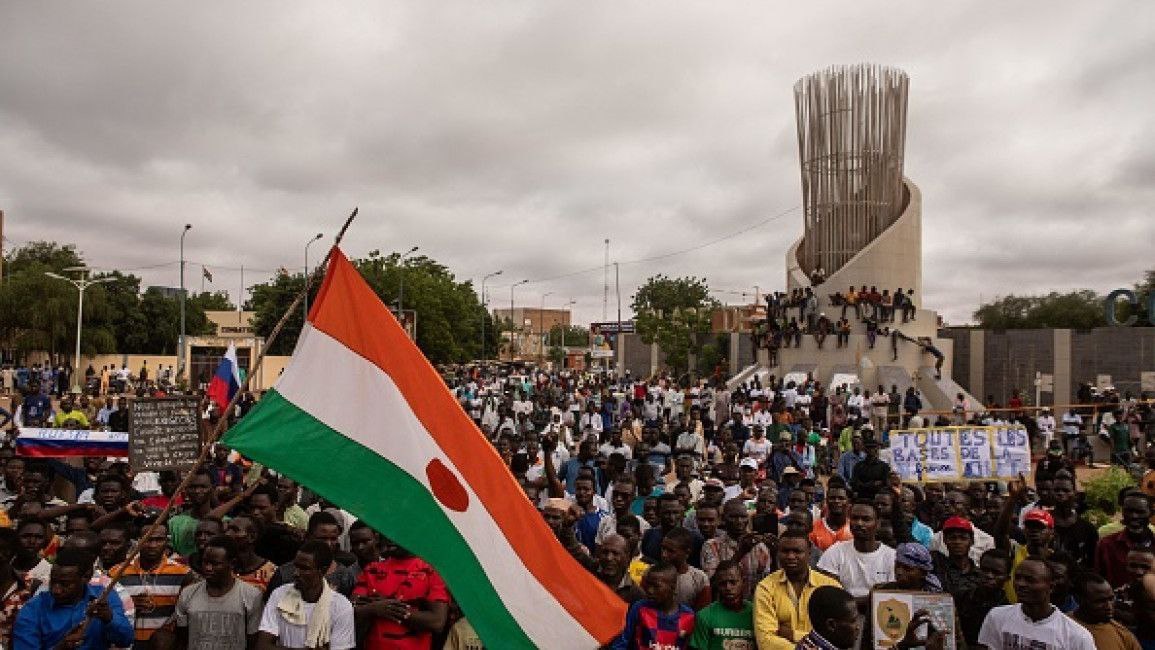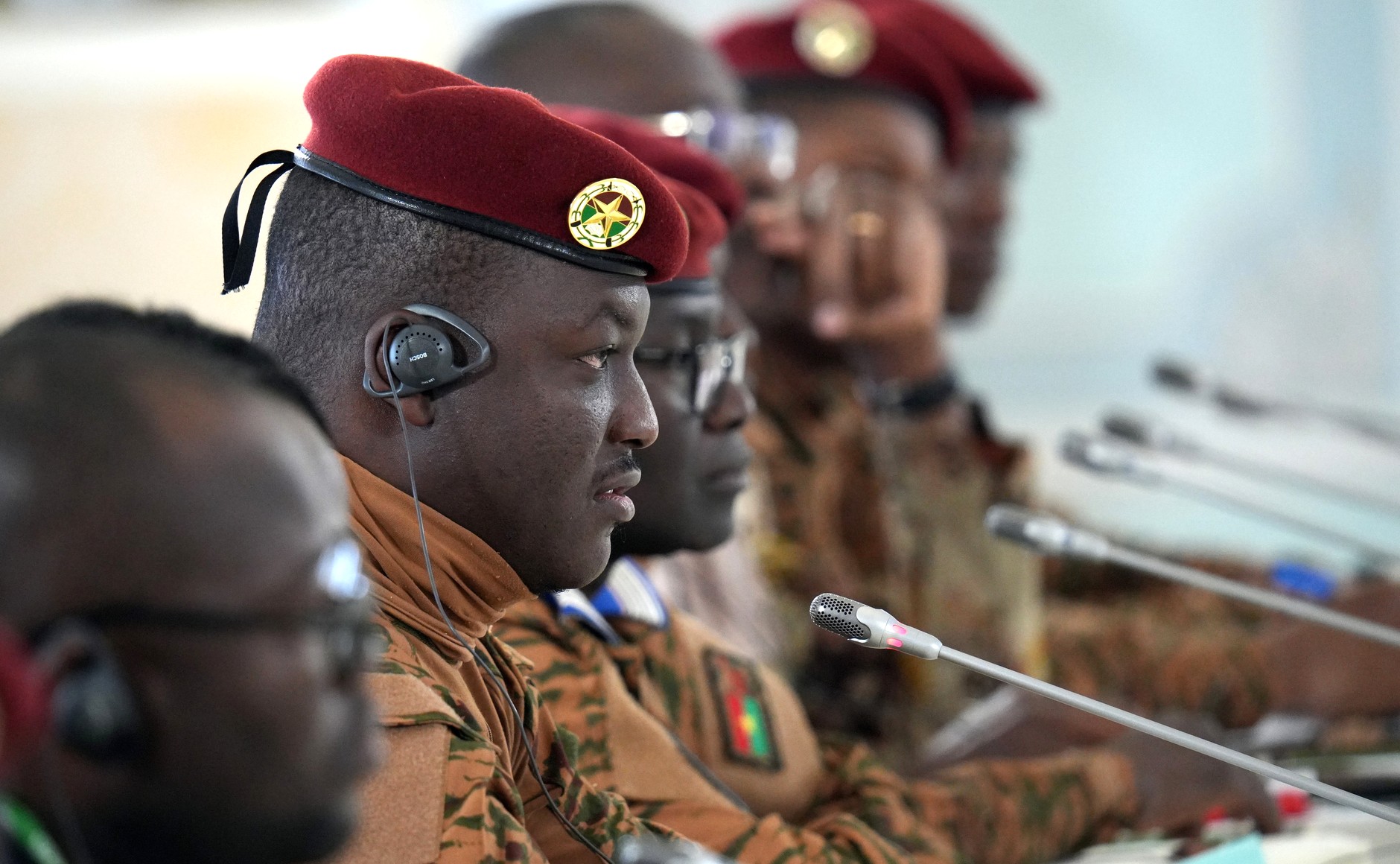West African defense chiefs are planning a potential military intervention in Niger if the coup authorities do not restore the overthrown government by Sunday, indicating the possibility of a major regional war.
The conflict also draws in middle powers, France and Russia, on opposite sides of the Niger coup, although none have directly challenged the other.
Abdel-Fatau Musah, the commissioner for political affairs, peace, and security in the Economic Community of West African States (ECOWAS) said about the military plans being drawn up as a signal to the Niger-Burkina Faso-Mali (N-BF-M) grouping “All the elements of an eventual intervention have been worked out, including the resources, the how and when,” according to a report in Al Jazeera.
Musah made the statement at the close of a three-day meeting in Nigeria’s capital, Abuja. ECOWAS has already imposed sanctions on Niger and said it could authorize using force if the coup leaders do not restore power to elected President Mohamed Bazoum by Sunday.
Nigeria is leading the charge against Niger in the ECOWAS, with Abuja already having cut off electricity supply to Niamey.
The 15-member body also sent a delegation to Niger on Thursday seeking an “amicable resolution,” but a source in the entourage said a meeting at the airport with the military’s representatives yielded no breakthrough, the report added.
The Niger coup and its backing by Burkina Faso and Mali against the ECOWAS represents a broader pushback against France and an attraction towards Russia. It has been in the making since last year when protests against Paris broke out in its former colonies in the Sahel.
Russia-Africa Summit
The events in the Sahel also nearly coincide with the Russia-Africa Summit in St. Petersburg, where the entire continent openly sought engagement with Russia and either directly or indirectly expressed disillusionment with global politics unfairly skewed in the affluent West’s favor.

But what was stunning was the leaders of South Africa, Zimbabwe, Eritrea, Uganda, and Burkina Faso’s charismatic coup leader and army officer, Captain Ibrahim Traore, openly attacking the West.
They slammed its hegemonistic policies; “neo-colonial” exploitation that has perpetuated poverty in the continent; mentioned its slave trade over five centuries; imposed sanctions on vulnerable countries as a retaliatory measure; and expressed gratitude towards the former Soviet Union for backing its post-War anti-Colonial anti-Apartheid freedom struggles from European powers.
The Kremlin has released the full transcript of the addresses by various African heads of state in the summit meeting and their separate bilateral meetings with President Vladimir Putin.
‘Russia Involved But Not Interfering’
The current emerging conflict, however, threatens to engulf the entire Sahel region and possibly spread to parts of the Maghreb if Niger, Burkina Faso, and Mali (N-BF-M) clash with Nigeria and France. While Paris and Moscow will not directly clash in the possible regional war, even an initial backing of opposing camps will cause substantial devastation before the two powers arrange a truce.
Russia has attempted to contain the conflict since it has not interfered in the events and the anti-French protests, as observed in official US White House and National Security Council (NSC) statements. Such an act would otherwise prompt its Western rivals to respond and lead to an escalatory spiral of counteractions, which, even if diplomatic, can precipitate a military conflict between the ECOWAS and N-BF-M.
But what marks the episode is the growing anti-French protests and pro-Russia demonstrations over the last year in Niger, Burkina Faso, Mali, Senegal, the Democratic Republic of Congo (DCR), and the Central African Republic (CAR).
France Failed To Provide Security
CNN quoted Nigerien protestors, who cited the running criticism of still enduring France’s paternalistic colonial attitude that still dictates the country’s policies. A French colony for more than 50 years before its independence in 1960, diplomatic ties between the two countries were strong before the coup.
“But many Nigeriens believe France has continued to act as imperial power when dealing with Niger, robbing it of natural resources and dictating how its leaders steer the economy. Niger is one of the world’s poorest countries and receives hundreds of millions of dollars each year in assistance,” CNN said.

Another reason has been the French failure to ensure security from Islamic State (IS) terror attacks. Niger’s military leaders revoked their security deals with France after coming in the recent protest, and one of the coup leaders even met with Wagner officials, according to reports. After coming to power in late-2020, Mali’s coup leaders officially engaged Wagner to combat the extremist terror organization.
The reason behind the ISIS spread in the Sahel itself has been blamed on the US and North Atlantic Treaty Organization (NATO) intervention in Libya in 2011. At the Russia-Africa Summit, Mali’s Interim President Assimi Goïta directly said – without naming ISIS – that “(Mali’s) significant crises like terrorism…poverty… defense and security (are a) result of the NATO’s intervention in Libya.”
Game-Changing Conflict
The solidarity between Burkina Faso and Mali as impoverished former colonies aspiring for independent development also led to another effort that greatly altered the new Cold War and African politics.
Moscow-based foreign affairs analyst Andrew Korybko pointed to how Burkina Faso and Mali are seriously considering merging into a federation, which Interim President Ibrahim Traore spoke about in an interview with Sputnik.
“The plans, first floated in February, add crucial context to their joint statement on Monday night that promised a military intervention in support of Niger if it was attacked and that a strike will amount to a declaration of war against both of them,” Korybko told EurAsian Times.
He also touched upon the role of Chad, whose decision to support the ECOWAS intervention, back N-BF-M, or stay neutral can radically overturn all the players’ calculus. “Chad has also been trying to rebalance its lopsided relationship with the West since the start of this year, which places certain pressures upon it that could limit its range of options in a regional crisis,” Korybko said.
The latest on Saturday was Chad’s defense minister Daoud Yaya Brahim announcing it will not intervene in Niger, just after the ECOWAS announced its intention to go in, according to TRT World.
- The author can be reached at satamp@gmail.com
- Follow EurAsian Times on Google News




